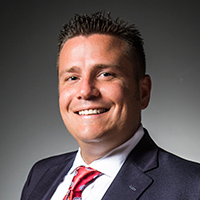When It Comes to Retirement, Look for a Plan, not a Pitch
Pick your plan, and your planner, with your eyes wide open. The ability to dig beneath the surface of a pitch can be a retirement saver's best friend.

Imagine you have a big bucket of cash and three friendly acquaintances are offering to take care of it for you.
The first one tells you he can take the money you have and use it to make even more. But to get a bigger reward, you’ll have to take some risks. And if you need to get some of the money back at an inopportune time, you could lose a chunk of what you’ve earned.
The next one assures you she can absolutely keep your money safe, and you can have some control over when and how you access it. But any growth you might see is likely to be slow — so slow it might not keep up with inflation.

Sign up for Kiplinger’s Free E-Newsletters
Profit and prosper with the best of expert advice on investing, taxes, retirement, personal finance and more - straight to your e-mail.
Profit and prosper with the best of expert advice - straight to your e-mail.
The third one says he, too, can safeguard your money, not just for you but for your loved ones if something happens to you. And he even has some ways to make sure you can get a set payout every month, if that’s something you’re interested in. But it’s complicated and there may be some strings attached.
Who would you choose?
Welcome to the financial industry and the three worlds within it that are vying to help you manage your money: The Wall Street world, the banking world and the insurance world.
Can Your Adviser Do It All?
If you’re closing in on retirement, you’re probably somewhat familiar with all three, thanks to commercials and infomercials on Sunday morning TV or ads in your favorite publications. And that’s not necessarily a bad thing. Knowledge is power.
Unfortunately, all too often the marketing message — “We’re here to help with all your retirement needs” — is a thinly disguised pitch for products and services specific to whatever world is buying the ad space — and that world only. Stocks and bonds from the Wall Street world. Savings accounts and certificates of deposit from the banking world. Life insurance and annuities from the insurance world.
That’s confusing and, frankly, wrong. The person you want taking care of your big bucket of cash is the one who can do it all. Because for most pre-retirees and retirees, a diversified portfolio that includes products from all three worlds is usually the best way to go.
And that requires a plan, not a pitch. It also requires finding someone who can give you all three.
Time for a Background Check
But before you go to a steakhouse for a dinner seminar on Social Security or have the first office visit with your brother-in-law’s “guy,” it’s important to really research the person who will be offering you financial advice. What professional designations and licenses does he or she hold? Have they filed bankruptcy or do they have tax liens? And is this person even experienced in working with people like you?
The financial industry has made it pretty easy to do this homework. Both the Financial Industry Regulatory Authority (FINRA) and the Securities and Exchange Commission (SEC) have tools that let consumers check out a financial professional’s credentials.
- On the FINRA site, you can access BrokerCheck to see if a person or firm is registered to legally sell securities and/or give investment advice.
- On the SEC’s Investment Advisor Public Disclosure (IAPD) website, you can get information about both SEC and state Registered Investment Adviser firms.
- Or you can use the North American Securities Administrators Association (NASAA) site to get contact information for state regulators.
- If you want to find out if the financial professional you’re considering is a Certified Financial Planner, you can check the CFP Board’s website.
What happens if the person’s name doesn’t show up on any of the sites you check? It might be a red flag that he or she won’t have access to all the products you need. A financial professional who is licensed to sell only life insurance products, for example, can’t work with you on buying stocks, bonds, mutual funds — or even some annuities.
Be Sure to Look for a Fiduciary
Finally, if you want an adviser who is looking out for your best interests, both legally and ethically, you’ll want to work with a fiduciary. If you aren’t sure if you current or prospective adviser is a fiduciary, just ask, “What legal standard do you operate under?” Or, better yet, ask to see some paperwork that proves it or to sign a fiduciary pledge for you, such as this:
Fiduciary Pledge
I, the undersigned, __________________________________, (“Financial Adviser”), pledge toalways put the best interests of __________________________________ (“Client or Clients”) first, no matter what.
As such, I will disclose in writing the following material facts and any conflicts of interest (actual and/or perceived) that may arise in our business relationship:
Financial Adviser: _____________________________ Date: ____________________
Client: ______________________________________ Date: ____________________
Client: ______________________________________ Date: ____________________
Here’s the thing: If you’re going to spend 80,000 hours (or more) out of your lifetime working, isn’t it worth 30 minutes to a couple of hours to research one of the most important financial decisions of your life? This is, after all, the person or firm you’re going to trust with your life savings — your big bucket of cash. And you’re going to want them to use every tool available to get you successfully to and through retirement.
Securities offered through Kalos Capital, Inc. and investment advisory services offered through Kalos Management, Inc., both at 11525 Park Woods Circle, Alpharetta, GA 30005, (678) 356-1100. Retirement Income Strategies is not an affiliate or subsidiary of Kalos Capital, Inc. or Kalos Management, Inc.
The appearances in Kiplinger were obtained through a PR program. The columnist received assistance from a public relations firm in preparing this piece for submission to Kiplinger.com. Kiplinger was not compensated in any way.
Kim Franke-Folstad contributed to this article.
- All commissions, fees, loads and expenses, in advance that client will pay as a result of my advice and recommendations;
- All commissions I receive as a result of my advice and recommendations;
- The maximum fee discount allowed by my firm and the largest fee discount I give to other customers;
- The fee discount client is receiving;
- Any recruitment bonuses and other recruitment compensation I have or will receive from my firm;
- Fees I paid to others for the referral of client to me;
- Fees I have or will receive for referring client to any third parties; and
- Any other financial conflicts of interest that could reasonably compromise the impartiality of my advice and recommendations.
The appearances in Kiplinger were obtained through a PR program. The columnist received assistance from a public relations firm in preparing this piece for submission to Kiplinger.com. Kiplinger was not compensated in any way.
Profit and prosper with the best of Kiplinger's advice on investing, taxes, retirement, personal finance and much more. Delivered daily. Enter your email in the box and click Sign Me Up.

Kristian L. Finfrock is the founder of and a financial adviser at Retirement Income Strategies. He is an Investment Adviser Representative of Kalos Capital and a licensed insurance professional. He resides in Evansville, Wisconsin, with his two daughters.
-
 The Best Aerospace and Defense ETFs to Buy
The Best Aerospace and Defense ETFs to BuyThe best aerospace and defense ETFs can help investors capitalize on higher government defense spending or hedge against the potential of a large-scale conflict.
-
 Walmart Takes on Prime Day With Competing July Deals Event
Walmart Takes on Prime Day With Competing July Deals EventWalmart is launching its own multi-day sales event to rival Amazon Prime Day — and it could be a smart time to shop, even if you're not a member.
-
 Roth IRA Conversions in the Summer? Why Now May Be the Sweet Spot
Roth IRA Conversions in the Summer? Why Now May Be the Sweet SpotConverting now would enable you to spread a possible tax hit over more than one payment while reducing future taxes.
-
 A Financial Expert's Three Steps to Becoming Debt-Free (Even in This Economy)
A Financial Expert's Three Steps to Becoming Debt-Free (Even in This Economy)If debt has you spiraling, now is the time to take a few common-sense steps to help knock it down and get it under control.
-
 I'm an Insurance Expert: This Is How Your Insurance Protects You While You're on Vacation
I'm an Insurance Expert: This Is How Your Insurance Protects You While You're on VacationHere are three key things to consider about your insurance (auto, property and health) when traveling within the U.S., including coverage for rental cars, personal belongings and medical emergencies.
-
 Investing Professionals Agree: Discipline Beats Drama Right Now
Investing Professionals Agree: Discipline Beats Drama Right NowBig portfolio adjustments can do more harm than good. Financial experts suggest making thoughtful, strategic moves that fit your long-term goals.
-
 'Doing Something' Because of Volatility Can Hurt You: Portfolio Manager Recommends Doing This Instead
'Doing Something' Because of Volatility Can Hurt You: Portfolio Manager Recommends Doing This InsteadYes, it's hard, but if you tune out the siren song of high-flying sectors, resist acting on impulse and focus on your goals, you and your portfolio could be much better off.
-
 Social Security's First Beneficiary Lived to Be 100: Will You?
Social Security's First Beneficiary Lived to Be 100: Will You?Ida May Fuller, Social Security's first beneficiary, retired in 1939 and died in 1975. Today, we should all be planning for a retirement that's as long as Ida's.
-
 An Investment Strategist Demystifies Direct Indexing: Is It for You?
An Investment Strategist Demystifies Direct Indexing: Is It for You?You've heard of mutual funds and ETFs, but direct indexing may be a new concept ... one that could offer greater flexibility and possible tax savings.
-
 Q2 2025 Post-Mortem: Rebound, Risks and Generational Shifts
Q2 2025 Post-Mortem: Rebound, Risks and Generational ShiftsAs the third quarter gets underway, here are some takeaways from the market's second-quarter performance to consider as you make investment decisions.